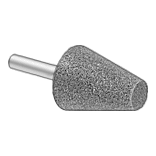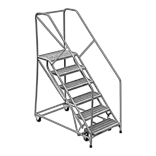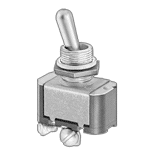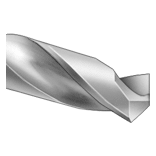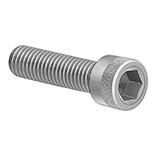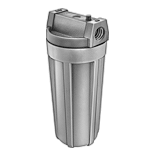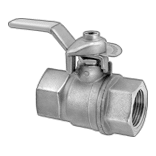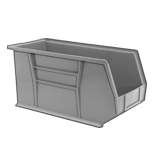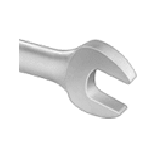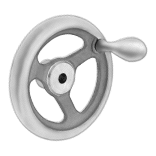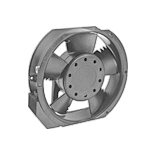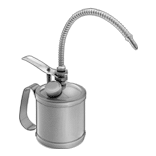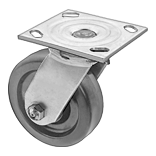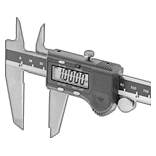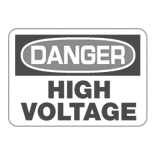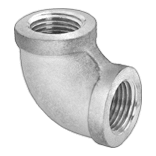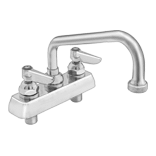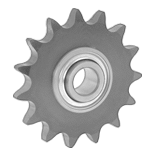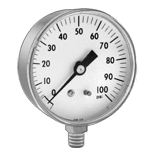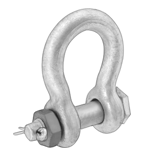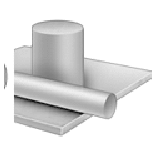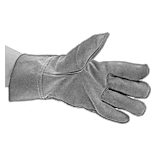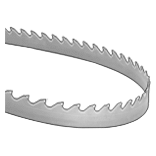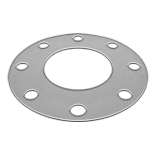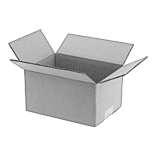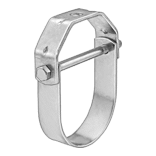Creep- and Acid-Resistant Recrystallized
Silicon-Carbide Ceramic Sheets

- Color: Gray
- Maximum Temperature: 2,900° F
- Porosity: 15%
- Compressive Strength: 72,500 psi
Made of nearly pure silicon carbide, these sheets resist creep more than other ceramics and are consistently strong throughout, so they won’t sag under heavy loads at high temperatures. Because they withstand extreme temperatures, they’re often used as kiln furniture and machined into structural furnace components. This material has pores to help it expand during temperature swings to avoid cracking.
Silicon carbide resists chemicals such as acids and bases. It’s more chemically resistant than silicon nitride, but not as resistant as nitride-bonded or sintered silicon carbide.
Silicon carbide is nearly as hard as diamond and resists wear and abrasion. It won’t dent upon impact. Materials this hard are difficult to machine and can only be worked using diamond-tipped tools. Silicon carbide’s hardness makes it more brittle than other ceramics, so it will not perform as well as silicon nitride and yttria-stabilized zirconia if it cracks. This material resists breaking when bent, but it’s less bendable than sintered and nitride-bonded silicon carbide.
For technical drawings and 3-D models, click on a part number.
3" × 3" | 6" × 6" | 12" × 12" | |||||
|---|---|---|---|---|---|---|---|
| Thickness | Thickness Tolerance | Each | Each | Each | |||
| 1/8" | -0.040" to 0.040" | 00000000 | 000000 | 00000000 | 000000 | 000000 | 00 |
| 3/16" | -0.040" to 0.040" | 00000000 | 00000 | 00000000 | 00000 | 000000 | 00 |
| 1/4" | -0.040" to 0.040" | 00000000 | 00000 | 00000000 | 000000 | 00000000 | 0000000 |
| 1/2" | -0.040" to 0.040" | 00000000 | 00000 | 00000000 | 000000 | 00000000 | 000000 |
Creep- and Acid-Resistant Recrystallized Silicon-Carbide Ceramic Rods

- Color: Gray
- Maximum Temperature: 2,900° F
- Porosity: 15%
- Compressive Strength: 72,500 psi
Over 99% pure, these rods have the strength of silicon carbide throughout, so they resist deforming under heavy loads at high temperatures (known as creep). They’re often used as supports in kilns. Because silicon carbide is porous, it expands in high temperatures without cracking. This material’s porous nature means it’s less flexible than sintered and nitride-bonded silicon carbide.
Silicon carbide won’t break down from most chemicals and is often machined into crucibles to hold chemical compounds. It resists chemicals better than silicon nitride, but not as well as nitride-bonded or sintered silicon carbide.
Silicon carbide’s hardness is second only to diamond, so it withstands repeated wear and won’t dent on impact. However, its hardness makes it difficult to machine and it must be worked using diamond-tipped tools. It’s more brittle than other ceramics, so once a crack forms, it loses its strength.
For technical drawings and 3-D models, click on a part number.
